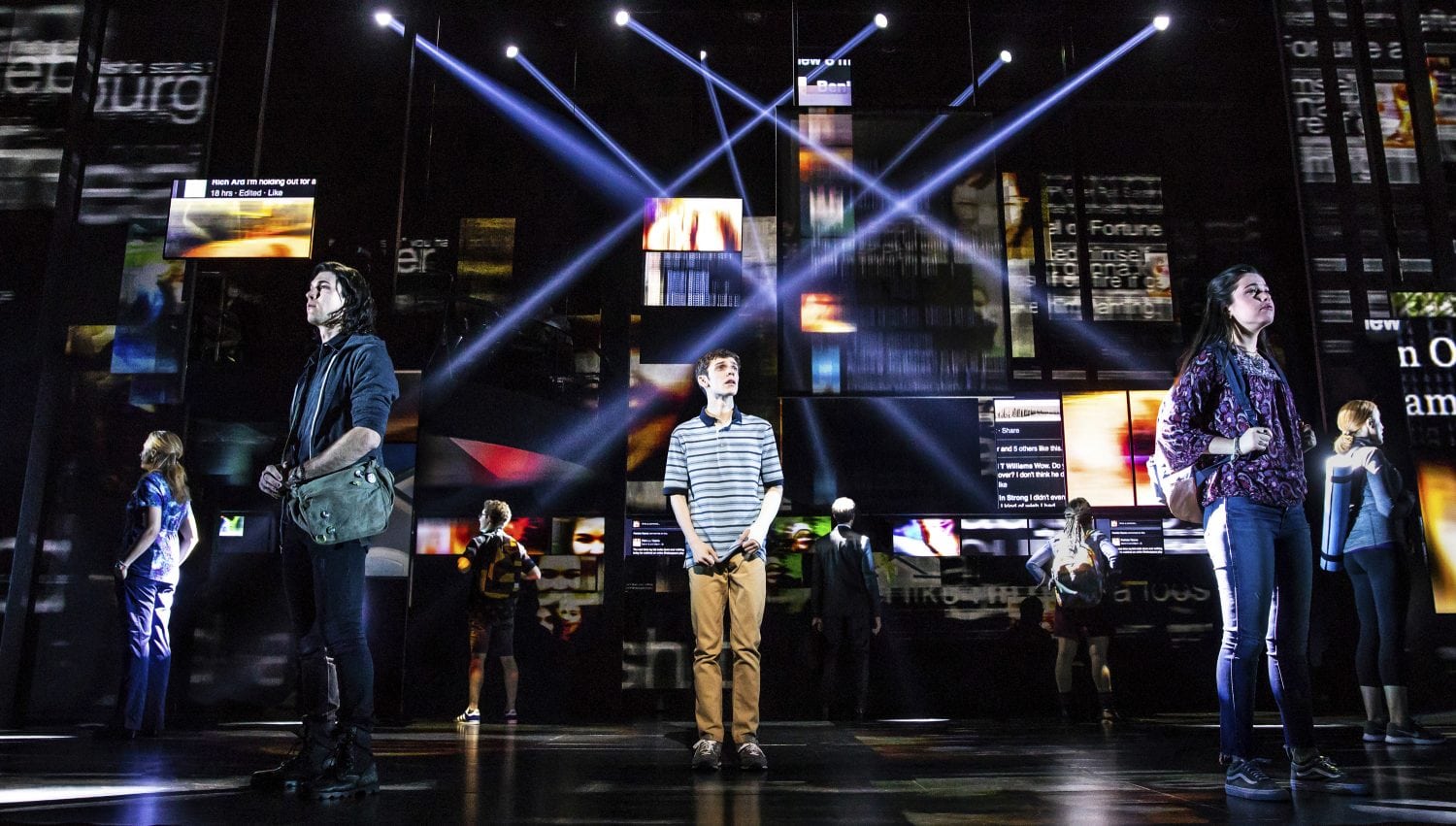Being a devoted fan of the award-winning musical’s soundtrack, I eagerly awaited the touring production of “Dear Evan Hansen,” like many others. So when it came to San Francisco at the Curran Theater right near Union Square, I jumped at the opportunity to see it.
However, “Dear Evan Hansen” lived up to none of my expectations and went so far as to spoil the beauty of the music. Pasek and Paul craft a most magnificent soundtrack — but the story of “Dear Evan Hansen” makes a fool of any enjoyment I previously derived from it.
“Dear Evan Hansen” tells the tale of the eponymous high schooler Evan (Ben Levi Ross), who fabricates an extraordinarily long story about being the secret best friend of a boy who has just committed suicide. Seeking attention and enjoying his newfound fame, he gains a girlfriend and new friends, but not before the deception gets the better of him. “Dear Evan Hansen” is all about posturing, and the production itself certainly does a good job of that; I quickly began to discover the contrived narrative as I watched in horror, feeling manipulated by Evan’s desperation.
The character of Alana felt like a metonym for the own musical — “Dear Evan Hansen” wants to be more woke than it actually is. Jared, Evan’s not-so-friend, became a terrible high school trope, devolving into a bad joke and nearly unbearable and blatantly unfunny sexual jokes. Perhaps the character I felt the most for was Evan’s single mother, Heidi (Jessica Phillips), who works night shifts as a nurse and also attends law school. While previously not a fan of “So Big, So Small,” the character’s big number, it became a beautiful elegy to all her work that goes unseen by Evan.
The set design, however beautiful, feels extraordinarily inappropriate for the narrative. Huge moving screens dominate the stage, estranging Evan and his world. The house sets gracefully slide in for each scene, an isolated and lackluster placement amidst the world of the Internet. For Evan, it’s about the spaces that are and aren’t fostered — he runs to the Murphys because he feels loved, and he runs away from his own existence because he doesn’t like it.
With the set design, Evan’s new spaces become as empty as the ones he tries to escape, eerily and uncomfortably subverting the very message of the musical. The technical elements are impressive, but they remain nonetheless disquieting, doing nothing to bring life to the work.
“Dear Evan Hansen” lies in the realm of new contemporary musicals that shy away from big ensemble and dance numbers in favor of smaller, more intimate song selections and complex movement. This is exemplified in “You Will Be Found,” which, despite the remarkably overdone sequence of hundreds of videos being played at the same time as part of the song, stands out as a feat of choreographic artistry while the characters crisscross their way across the stage and navigate the complex landscape of Evan’s lies.
On the other hand, musical numbers like the admittedly catchy “Sincerely, Me” end up with small dance pieces slapped on top, as if the number itself doesn’t belong with the contrived dancing. It’s a balance that “Dear Evan Hansen” struggles too hard to achieve, never really managing to find its footing. It doesn’t know what kind of musical it wants to be, with a heavily pop-inspired soundtrack and brightly digital and contemporary set, but also with a story that makes it feel like it belongs in the land of campy, melodramatic young adult novels a la “13 Reasons Why” (and certainly not all young adult novels are campy and melodramatic).
I was thoroughly disappointed with “Dear Evan Hansen.” It’s a musical that I’ve continued to grapple with, never really knowing how to approach it. As I listen to the soundtrack now, I can’t disentangle the utter feelings of dread that I feel as I remember seeing it onstage. It’s strange how the visual and narrative component of a musical can take away so much from the beauty of the music itself, but “Dear Evan Hansen” is proof that a musical really needs every aspect to work in order to be creatively outstanding.
Contact Olivia Popp at oliviapopp ‘at’ stanford.edu.
